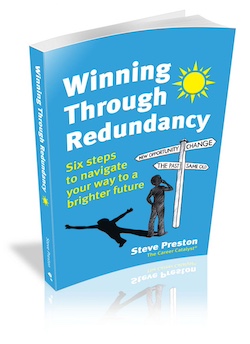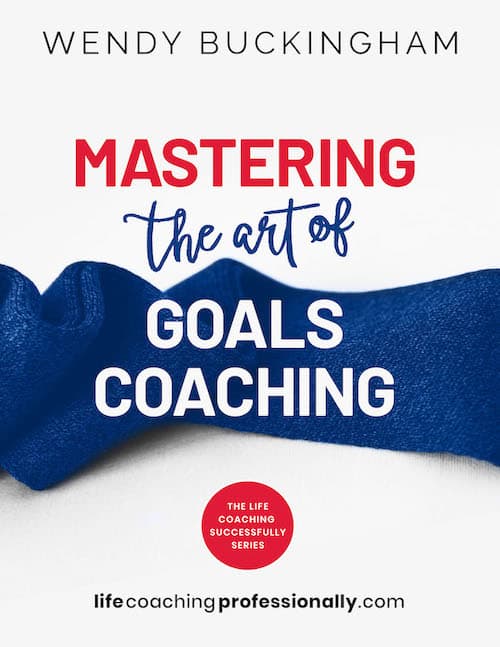- Life Coaching
- Discover Your Niche
- Career Coaching
How A Life Coach Can Become A Career Coach
Page Summary
As a life coach you may be perfectly positioned to also become a career coach. On this page I explore the skills and qualifications you need, five possible niches, including redundancy coaching, and how you can help clients decide on their career steps.
Quick Links
I may receive commissions at no cost to you. I participate in the Amazon Services LLC Associates Program. More...
Three Steps To Become A Career Coach
1. Get some career coach specific qualifications
You don't necessarily have to have any extra qualifications in addition to your basic life coach training to become a career coach. However, it will help your skill credibility if you have taken some extra specific career coach training in this area and are familiar with the job opportunities available in the various niches your client might be interested in.
You will find you often use similar skills when helping client with their careers as you would in life or personal growth coaching. That is listening, knowing the right questions to ask and what to do with the answers.
So if you don't yet have any life coach training, and are aiming for this niche, make sure the life coaching school you enrol with offers modules and materials for career coaching. Or be prepared to do some extra training specifically on career coaching.
If you are planning to work as a career coach in a school, university, recruitment agency or corporate organisation check out their requirements so far as qualifications go. In some cases you may find you also need a degree in psychology or counselling.

2. Choose your career coaching niche
You may want to coach broadly across all career needs. Or as with any main coaching specialty, there are niches you might want to focus on depending on your own background and experience. I go into more details of these niches later in my five ways you can help career coaching client, but these just a few of the possible carer sub-niches to consider:
- School or College leavers.
- People seeking a new path or to re-enter the workforce
- Empty Nesters and Retirees
- People in an industry you have worked in and now have an inside knowledge
- People facing redundancy
- Executives looking to climb further up the career ladder
3. Get familiar with the job market
When you become a career coach you need to have an appreciation of the opportunities available for your clients from both a skills and relevant geographical base in your particular niche. You may also need to be able to provide information and suggestions as to where your client should look to find work.
Keep up with industry talk about the various jobs markets and become familiar with the different online job search sites so you know which ones to recommend.
Five Ways You Might Work With Your Career Clients
You can be a generalist career coach working across the board of career issues. Or you may choose to specialise in a particular are such as these five suggestions:
1. Recovering from redundancy
Job redundancy can mean that your client will need more help than just exploring new career options. Depending on the circumstances, their confidence may also need restoring.
Even if there are glowing references and a payout with redundancies, there is often an emotional cost that can leave a person feeling fragile and disillusioned.
This is where your life coaching skills will really come into play as you help restore their confidence and motivation and then move them forward with a new career goal.
A really useful book for coaching clients who have experienced redundancy is Winning Through Redundancy by Steve Preston.
He takes the reader through six simples steps to turn them around from feeling lost and insecure to regaining their confidence for a brighter future.
The book has lots of exercise to use with clients as well as interesting case studies.
2. Resumes, CVs and Job Applications
Sometimes the client who comes to you for career coaching will want help with telling their story in their resume so they can present a compelling case to prospective employees. If you have the background and skills you can offer this as part of your service.
If you don't feel confident about your own resume skills, there are resume writing services that you could form a strategic partnership with for cross referrals. Part of this process might also be helping the client master interviewing skills so they come across to the employer as a good prospect for the job.
3. Career change or advancement
Not so long ago people were expected to get a job or choose a career when they left school and stay with it, until retirement. If you had changed jobs regularly you could even be labelled unstable!
Nowadays, as employees evolve and discover new paths, it’s seen as quite OK and even encouraged and desirable to change direction and employment many times in your working life!
I am sure no one left school wanting to become a life coach, yet, here you are!
The client may come to you because he or she feels like a round peg in a square hole. Or their current occupation seemed like a good idea at the time, (or they were pushed into it by parents or peers) and they now feel it it’s time for change to a more authentic career.
Alternatively, someone who comes to you for career coaching may be an executive who is quite satisfied with their career path and how they are going. They may just want to improve their communication and relationship skills, get some tips on time management or outsourcing so they can accelerate up the career ladder to where they know they belong.
4. 'Empty Nesters' and Retirees
'Empty Nesters', those parents whose children have been their life but have now left home, are often looking for adult life and career coaching to find a new and fulfilling direction to fill the gap.
Same goes for people who have retired from their long time job but still want to be part of the workforce, maybe by owning a small business or consulting from their years of expertise and experience.
These are growing niches with plenty of opportunity for the career life coach.
5. School leavers or college graduates
When you become a career coach you will often have young clients who, after all the stress and strain of exams need help working out their next steps.
Even with good passes, school leavers are often still unsure of their first career path. They may need skilled career life coaching to help them with their confidence and get clarity on which direction to take in either further education or looking for a job that fits in with a career direction they are interested in exploring.
You can also check out some actual career coaching case studies with the link to related pages at the foot of this page.
Helping Clients With Career Goals
If you DO choose to become a career coach you'll find the chapter on "Taking the Fail out of Failed in my book Mastering the Art of Goals Coaching invaluable in certain situations.
It is particularly useful for clients who have a lot of negative thoughts about themselves and any career goals they failed to achieve or school leavers who didn't get the marks they were aiming for.
I also give many other tips for successfully achieving career goals as well as some real case studies.
Click the link for a preview of the content.





